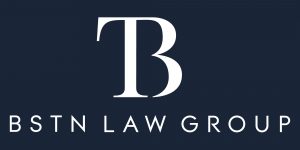Deregulation:Banks May Provide Eight Financial Products and Services to High-asset Customers
The Financial Supervisory Commission(FSC) announced that the “Regulations Governing Banks Conducting Financial Products and Services for High-asset Customers”(”the Regulations”) which was promulgated and implemented on August 7, 2020. The FSC stated that banks in Taiwan have devoted to the wealth management industry for decades, and it is time to relax the regulations and the introduction of related supervisory measures in order to enhance the competitiveness of domestic wealth management business in the international financial market.
The Regulations consisted of two parts: 1.deregulation measures for high-asset customers; 2.supervisory measures to banks. For financial customers, they are much concerned with issues including how to be a high-asset customer, what should a high-asset customer need to know, and what are the deregulation measures. Therefore, the author would like to introduce 3 points to financial customers who are interested in the Regulations:
How to be a high-asset customer?
A customer that meets the following conditions may file an application provided in writing to the bank to become a high-asset customer:
- The customer provides proof of financial capacity equivalent to NT$100 million or above in net value of investable assets and insurance products value; or holds more than NT$30 million in net value of investable assets at the bank and provides a statement of holding and equivalent to NT$100 million or above in net value of investable assets and insurance products value.
- The bank confirms that the natural person or the individual authorized by a juristic person for conducting transactions retains comprehensive professional knowledge and trading experience in financial products and confirms that the natural person or juristic person retains adequate capacity for bearing risks.
- The customer fully understands the exemptions of the liabilities of the bank for providing financial products or services to high-asset customers and other related regulations regarding the natural persons or juristic persons of professional investors or the natural persons or juristic persons of professional customers, and agrees to sign on as a high-asset customer.
What should a high-asset customer need to know?
- A high-asset customer should understand that the bank shall use the information obtained through KYC procedures as the basis for providing personalized or customized financial products or services.
- A high-asset customer must fully understand the potential risks and maximum possible loss of financial products or services before deciding to invest in financial products or accepting services.
- The regulations in the Financial Consumer Protection Act do not apply to high-asset customers.
- A high-asset customer should understand the scope of personalized or customized financial products or services the bank plans to provide.
What are the deregulation measures?
The deregulation measures for a total of 8 financial products and services provided for high-asset customers including:
- Foreign-currency bank debentures issued by banks may be connected to derivatives or structural bonds.
- Banks may provide the aforementioned products through trusts or concurrent proprietary securities trading.
- DBUs may trade offshore structured bonds with high-asset customers through concurrent proprietary securities trading.
- Offshore branch institutions or investees of domestic banks or securities firms may issue offshore structured products.
- OBUs may provide TWSE derivatives to high-asset customers.
- High-asset customers may be exempted from credit rating restrictions for investment in foreign bonds.
- Banks may establish their own review procedures for offshore structured products.
- Banks may provide financial products or consulting services based on the needs of high-asset customers.
*For more details about “Regulations Governing Banks Conducting Financial Products and Services for High-Asset Customers “, please refer to https://law.moj.gov.tw/LawClass/LawAll.aspx?pcode=G0380267

